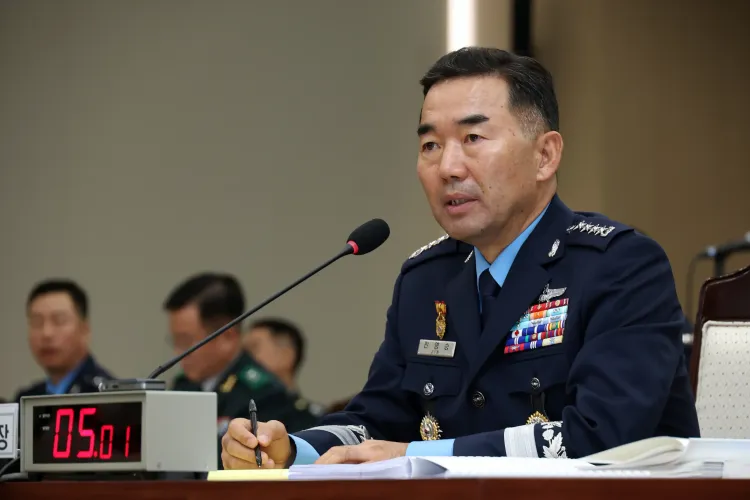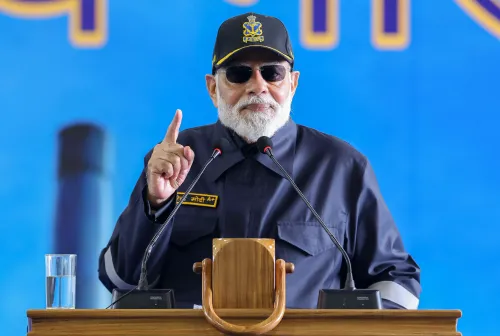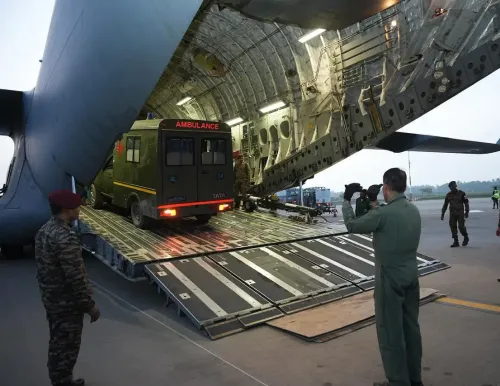Did North Korea Receive Russian Assistance for Hwasong-20 ICBM?

Synopsis
Key Takeaways
- North Korea may have received Russian technology for the Hwasong-20 ICBM.
- The Hwasong-20 was unveiled during a military parade marking the 80th anniversary of the ruling party.
- South Korea is enhancing its surveillance capabilities through the launch of multiple satellites.
- Military responses are being prepared to address North Korea's advancements.
- Continuous monitoring of North Korea is expected with new satellite technology.
Seoul, Oct 14 (NationPress) It appears that North Korea may have acquired technological support from Russia in the creation of a new intercontinental ballistic missile (ICBM), according to the chairman of South Korea's Joint Chiefs of Staff (JCS), who spoke on Tuesday.
During a military parade last week, North Korea revealed the Hwasong-20 ICBM, which they referred to as "the most formidable nuclear strategic weapon system," in celebration of the 80th anniversary of the ruling Workers' Party of Korea.
The design of the transporter erector launcher for the Hwasong-20 seemed to differ from the earlier Hwasong-19, first launched in October of the previous year, leading to speculation that support from Russia may have influenced the development of this new long-range missile amidst their strengthening military ties.
"I believe there is a significant possibility," stated JCS Chairman Gen. Jin Yong-sung during a parliamentary audit session when inquired about this likelihood.
In addition to the Hwasong-20, North Korea showcased a variety of weapons, including a new hypersonic missile and vehicles designed to deploy multiple attack drones.
When questioned about the military's capacity to counter the hypersonic missile, Jin responded, "While interception accuracy may slightly decline, they can still be intercepted."
He acknowledged the apprehensions surrounding North Korea's weapons advancements and assured that the military is preparing to address these developments, emphasizing the need for further technological verification of the new weapon systems.
As part of this initiative, the top military official noted that they are looking to leverage commercial satellites to enhance their surveillance capabilities, as reported by Yonhap news agency.
"I believe it is vital to gather information quickly and repeatedly, utilizing not only military reconnaissance satellites but also civilian satellites," Jin stated. "We are actively pursuing this strategy."
South Korea successfully launched its first spy satellite in December 2023, equipped with electro-optical and infrared sensors to capture detailed imagery. Since then, three additional satellites featuring synthetic aperture radar (SAR) sensors have been launched, capable of collecting data irrespective of weather conditions.
Seoul plans to launch its fifth satellite, which will also be equipped with SAR sensors, later this year. Once all five satellites are in orbit, the nation expects to monitor North Korea every two hours.










